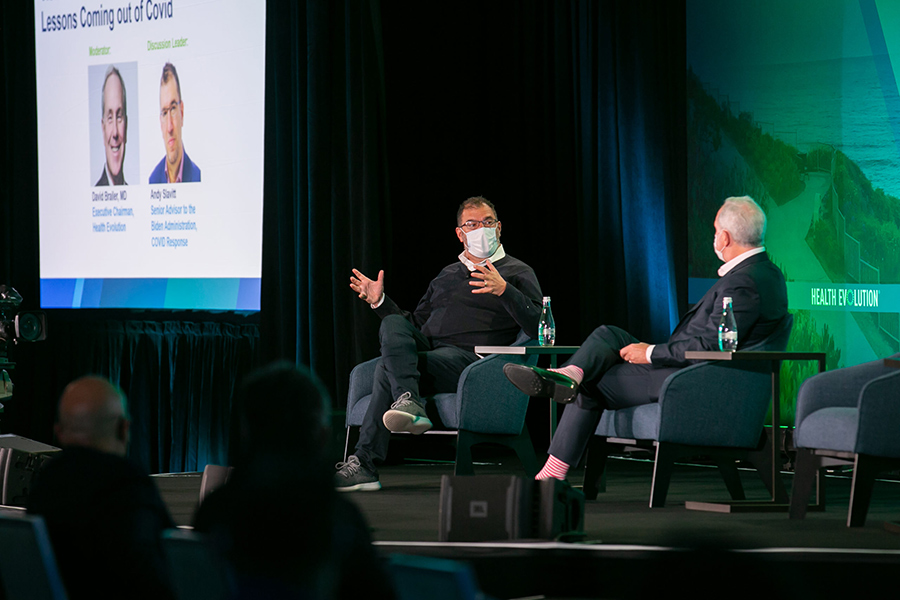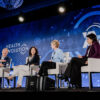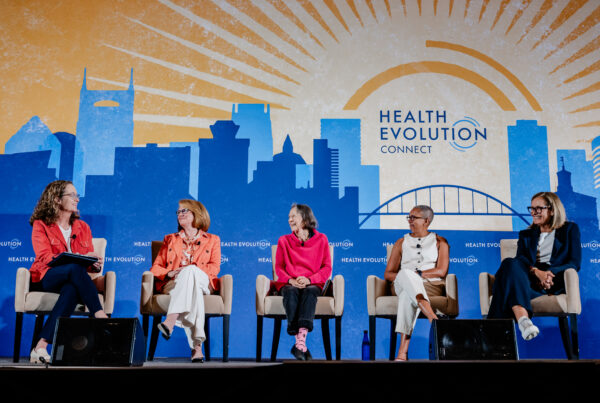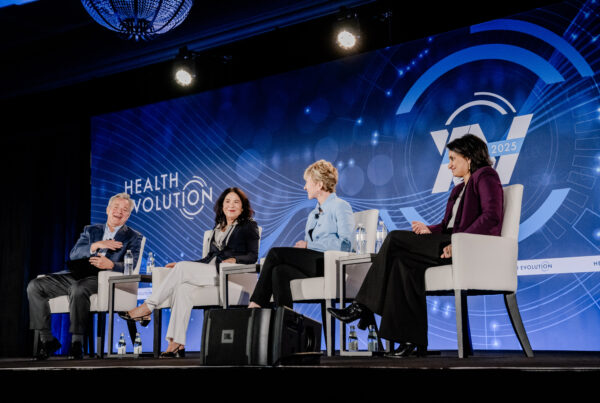The U.S. is currently facing the threshold of more than 650,000 people dying of COVID-19 and with a new peak expected in September, nearly 100,000 more people are projected to die by early December, according to new research from the University of Washington.
With the pandemic far from over, the Health Evolution Summit 2021 began last week with a Main Stage conversation between Andy Slavitt, former Senior Advisor to the Biden Administration’s COVID Response and former Acting Administrator of the Centers for Medicare and Medicaid Services and David Brailer, MD, Executive Chairman, Health Evolution, titled View from Washington: Lessons coming out of COVID.
Among the lessons the two discussed that CEOs and other health care executives can apply now to lead their organizations and communities into the post-pandemic era: why the current wave of the pandemic is worse than last year, the need to facilitate open, reasonable and meaningful dialogue, the reality that battling COVID-19 requires everyone working together and why the crisis has illustrated that the time for a public health revolution has come.
‘Far worse than 2020’
On a global scale, the Delta variant is horrific. As hard as Delta is hitting the U.S. and its limited natural immunity, places such as Southern Asia and much of Africa that have less access to vaccinations are struggling even more.
“Much of the world today doesn’t have what we would consider to be a functional health care system,” Slavitt said. “There are people dying in the streets around the world. In that sense, this is far worse than 2020.”
While Slavitt noted that the situation in the U.S. is better, enough people are still unvaccinated in every state that he is anticipating another wave of infections this month that arrives in a roller coaster fashion.
See also: Public health experts to private sector CEOs: Delta variant a more dangerous threat to your business
“If you look at the U.S. as a whole, we will probably peak around September, but it won’t feel that way. If you’re in the Northeast or the Northwest or the Midwest, your peak is going to be lower than it might be in the South, on a per capita basis, but you’re still going to have it,” Slavitt said. “We’re going to have a rush of activity trying to manage that. Schools are one of the most significant negatives we have right now in terms of community spread.”
The one remedy: Reasonable dialogue
Successfully emerging from the coming wave will require leaders, in both government and the private sector, to facilitate a meaningful exchange of facts, statistics, tactics and ideas. That is drastically different than the current situation in which even something as simple as masking is so politically charged that many people cannot discuss the matter with others who hold opposing points of view.
“If you asked me for one remedy, I’d say, ‘let’s figure out how to have reasonable dialogue about these issues.’ Congress needs to do it too, but we, the people who are the leaders in health care need to do it. Leaders all throughout the country, businesses, clergy, we need to be able to talk to each other without having it turn into life-or-death combat,” Slavitt said. “If you or I disagree on any one of these issues, masks or anything else, we should be able to disagree in a way that’s really professional, where I learned something from you, you learned something from me.”
Slavitt added that on the government side, agencies have been doing “a good job in a very imperfect situation,” but during times of crisis no one is giving anyone high marks for the work.
“The most important thing the agencies can do is tell the truth 100 percent of the time, good or bad, even if it’s going to disappoint and upset the public and not worry so much about your popularity in the day,” Slavitt said. “The True North metric is how many lives are ultimately saved.”
Pandemic response should not be a tribal decision
The pandemic has shone a light on the necessity for effective public-private partnership. Slavitt said that will continue moving toward the end of 2021 and into 2022 and be equally as critical in the next outbreak.
“It became very clear very quickly that it wasn’t just the government that needed to act. It was all of us. And that was true in every country around the world. The government could do some things. In this case, I think there were some things government didn’t do very well. I wouldn’t skirt that,” Slavitt said. “But in the end, the things that went most wrong were how much the entire country was willing to galvanize behind this opportunity to save a lot of lives.”
U.S. leaders and citizens can learn from places such as Hong Kong and other parts of the world that have seen more virus outbreaks in the past and developed a sense of community and common purpose such that wearing masks has not been nearly as controversial despite the fact that no one really wants to wear a mask, Slavitt said.
“I have talked to world leaders who say ‘the difference between you and us is we have the same controversies. People don’t love masks. People argue whether they work but people don’t make the decision based on their political identity. And in your country, it’s basically a tribal decision. We don’t have to deal with that,’” he added. “So that’s different.”
Time for a public health revolution
Acknowledging that he thinks the CDC and the FDA failed at the outset to coordinate rapid testing and testing from commercial and academic labs similarly to how South Korea responded to the outbreak, Slavitt said we need to reform our American health agencies. And he was clear that the agencies did not fail alone.
“These are institutions we know we need to rely on and they did not play their A game. There are reasons they didn’t play their A game, but the big picture reason is just years of neglect of public health,” he added. “We went into the pandemic with a fraction, maybe a third to a half of the workforce that we had in 2008 in public health.”
That hard reality included but was not limited to the CDC, or course. Slavitt said the neglect also involved reducing national stockpiles and stripping ourselves of intelligence based on the ideological view that the government needs to reduce spending because the deficit is viewed as the greatest threat to the country.
“I would argue that that’s not the greatest threat to the country. It turns out under-investing in some key ways turned out to be also a big threat. So there’s a lesson there,” Slavitt said.
The pandemic exposed weak spots in public health as well as the hospital system infrastructure such that it we are going to add vaccine distribution on top of it, that needs to be funded adequately, including the existing and future workforces.
“We need a revolution, if not a radical revolution, of public health professionals,” Slavitt said. “A lot of younger people are going to go into those careers and I think most organizations in a few years will probably have a Chief Public Health Officer to focus not only on employees, but their customers and to build awareness.”










